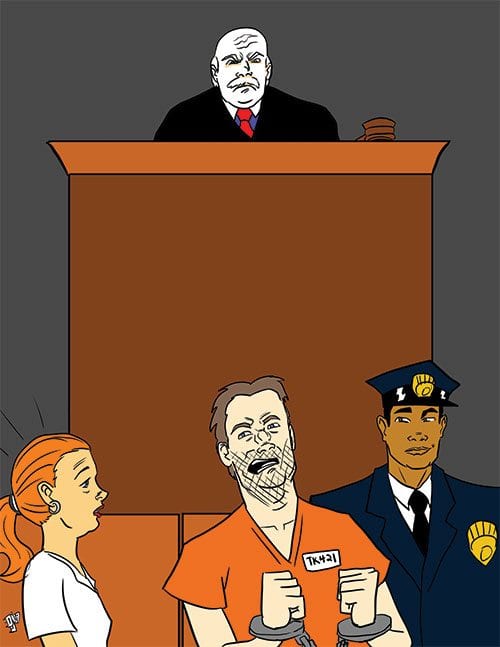
Labor Day is a good time for working men and women to consider that the rights due every citizen do not always apply to them. With his peremptory pardon of Joe Arpaio, the former sheriff of Maricopa County, Arizona, Donald Trump has demonstrated that the principle “no man is above the law” is a fraud. Arpaio had been convicted of violating a direct court order and was about to be sentenced when Trump pardoned him. In jails across the country, impoverished and legally innocent defendants sit in jail awaiting trial because they lack the funds to buy a bail bond.
Every day the criminal justice system violates the principle that anyone accused of a crime is innocent until proven guilty. Those accused of a crime are supposed to be released from custody unless they are believed to be a danger to society or are likely to flee and not be present for their trial date. Some indigents are held in jail for a period longer than the sentence they would receive if found guilty.
This is not a trivial problem.
According to a report by the non-profit organization Prison Policy Initiative, there are 646,000 locked up in the nation’s jails and 70 percent of those jailed are pretrial. The report found that those so incarcerated had a median annual income of $15,109, less than half the income of those their age who are on the outside. For black men, the income is only $11,275, which is only 64 percent of the income of black males 23-39 who are not incarcerated.
In most jurisdictions, bail is set by the court and bail bondsmen will charge the accused 10 percent of the amount of the bail as a fee for the bond. Still, for low-income defendants, a fee of $1,000 on bail of $10,000 would be too much. The problem with the money bail system is that poverty or affluence are the factors determining pretrial release.
The amount of the bail was once considered to be the cost of issuing an arrest warrant to return a defendant to the court. Some counties have found that a substantial number of specially selected defendants can be released without risking an increase of pretrial crime by them. In that category are those with clean criminal records, older defendants and those accused of fraud and public disorder.
In counties where there might be a great passage of time before the trial, it would be a violation of the civil rights of the accused to detain him for a lengthy period. Absence from work for a low-income detainee could cause him to be fired from his job, thus creating other financial difficulties for his family.
An effort to modernize the money bail system in New York City has encountered great resistance from the Association of Bail Bondsmen. They have raised an image of the horrors that would result, but potentially dangerous defendants should not be released no matter how substantial the bail.
A working-class American must wonder whether he really lives in the land of the free when Joe Arpaio is found guilty but is pardoned by presidential edict even before his sentence, while innocent indigents are jailed. This is a social problem that labor unions should unite to solve.
The present orientation of most labor unions does not engage the support of the community at large. While people would like others to earn satisfactory incomes, since labor unions focus so intensively on the incomes of members and not general social issues, they have lost community support. Active concern for equitable criminal justice could regenerate a politically helpful broad-based support for unions.





